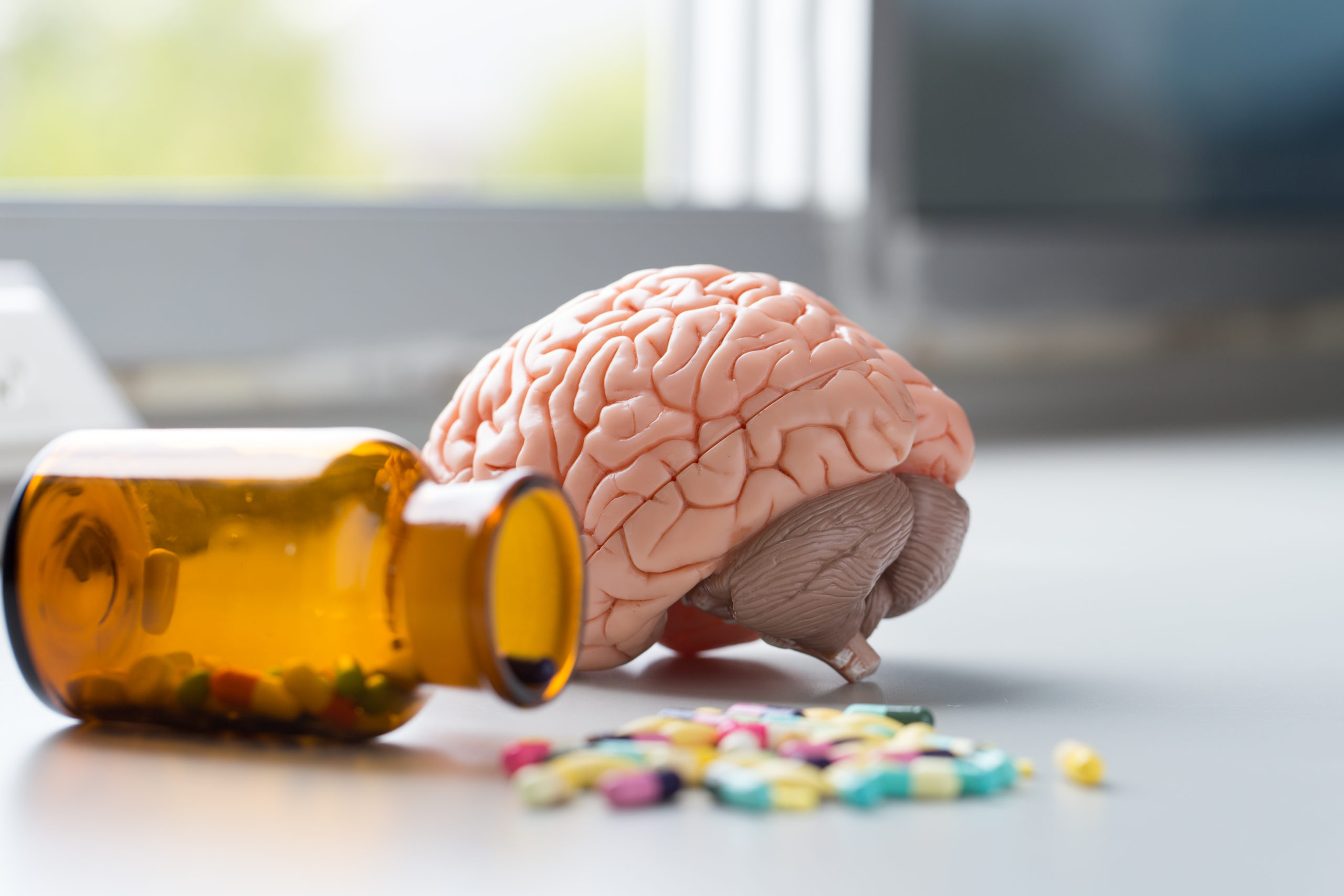
Counting steps is good — is combining steps and heart rate better?

Appendix pain: Could it be appendicitis?

Can saw palmetto treat an enlarged prostate?

How does Ozempic work? Understanding GLP-1s for diabetes, weight loss, and beyond

Zinc: What it does for the body, and the best food sources

Respiratory health harms often follow flooding: Taking these steps can help

Tips to leverage neuroplasticity to maintain cognitive fitness as you age

Can white noise really help you sleep better?

Celiac disease: Exploring four myths

What is prostatitis and how is it treated?
Harvard Health Blog
Read posts from experts at Harvard Health Publishing covering a variety of health topics and perspectives on medical news.
Articles
How to make the most of your child’s telehealth visit
Telehealth visits are going to be with us for the foreseeable future, and this includes children seeing their pediatricians. Parents can take steps before and during their child’s “exam” to help things go more smoothly and get the most out of the time with the doctor.
When lockdown is not actually safer: Intimate partner violence during COVID-19
For women living with abusive partners, the COVID-19 pandemic has made an already difficult and dangerous situation even worse. And even if a woman had been thinking about leaving an abusive situation or planning to leave, with current restrictions she may not be able to.
Functional dyspepsia: Causes, treatments, and new directions
Functional dyspepsia is a digestive condition without a clear cause, characterized by a feeling of fullness or a burning sensation. Depending on test results and symptoms, treatment may involve a course of antibiotics, a proton pump inhibitor, or a low dose of a tricyclic antidepressant.
Making telemedicine more inclusive
As coronavirus cases multiplied, many medical offices and clinics shifted to seeing patient virtually through telemedicine. While its value quickly became obvious, virtual visits are not optimal for everyone who needs health care. Awareness of limitations can help care providers improve access to their services.
What should you do during a psychiatric medication shortage?
With the increased stress caused by the the COVID-19 pandemic, prescriptions for medications to treat mental illnesses have increased, leading to potential shortages of certain psychiatric medications. This means that some people might need to discuss their options with their prescribing clinician.
Protesting in the time of COVID-19
Although the COVID-19 pandemic continues, and has worsened in some parts of the country, the rate of infection among those involved in recent protests has been low, because the events were outside and participants generally followed guidelines for wearing masks and maintaining social distancing.
Marijuana may be risky for your heart
How to help your young child cope with the pandemic
It’s easy to think that the COVID-19 pandemic has not changed life much for younger children, but it has, and they certainly notice their parents’ or caregivers’ behavior. There are no easy solutions, but there are definitely things parents can do to help their children understand what’s happening, and cope.
Can controlling blood pressure later in life reduce risk of dementia?
An analysis of multiple studies looking at the relationship between high blood pressure and cognitive health –– abilities like thinking, memory, and attention –– found that older people who lower high blood pressure are slightly less likely to develop cognitive impairment or dementia.
Brain plasticity in drug addiction: Burden and benefit
The brain’s neuroplasticity — its ability to adapt and change — makes it possible for us to learn new skills and solve complex problems, but it also makes some people more vulnerable to the consequences of substance use disorders. This same ability also makes it possible for a person to make cognitive modifications in order to change an addictive behavior.
How risky is a hug right now?
Even as we are moving toward re-establishing some normal activities, and as much as we might want to, it still feels risky to hug another person. Is there a way to do this safely? Is it worth the risk?
Autoimmune lung disease: Early recognition and treatment helps
Autoimmune diseases occur when the body generates an immune response against itself. Some people with rheumatic or autoimmune diseases, such as rheumatoid arthritis or lupus, develop an autoimmune lung disease. Marked by lung inflammation and possible scarring, it’s easier to treat if detected early.
4 parenting tips to break the negativity loop
Children and teens may get stuck in a cycle of focusing on negative emotions or aspects of daily events. Try these four tips to help break the negativity loop.
Probiotics — even inactive ones — may relieve IBS symptoms
People with irritable bowel syndrome (IBS) may take probiotics to try to restore the balance of bacteria in their gastrointestinal tract. A recent study found that an inactive form of a probiotic (which has some advantages over active versions) helped improve symptoms and quality of life in test subjects.
The plight of nursing home residents in a pandemic
Olive oil or coconut oil: Which is worthy of kitchen-staple status?
Coconut oil has been championed as having many benefits to health, but evidence to support these assertions remains sparse. However, there is far more evidence to support the benefits of olive oil, even in the context of typical American diets.
Summer’s here, teens and parents — now what?
For many teens, summer activities like jobs, internships, and camps are probably on hold this year, and a sense of uncertainty hovers over nearly everything. How can parents guide teens and help them flourish while also keeping them safe?
Global mental health in the time of COVID-19
The singular focus of health care services on COVID-19 has disrupted mental health care, and people with new or existing issues are having difficulty accessing much-needed care. A global initiative launched at Harvard Medical School aims to rectify this situation and transform global mental health.
New drugs approved for advanced BRCA-positive prostate cancer
Defective BRCA genes are well known for their ability to cause breast and ovarian cancers in women. But these same gene defects are also strong risk factors for aggressive prostate cancer in men. About 10% of men with metastatic prostate cancer — meaning cancer that is spreading away from the prostate — test positive for […]
Treating mild sleep apnea: Should you consider a CPAP device?
Obstructive sleep apnea affects an estimated 20% of the population, and if untreated it has negative effects on cardiac and metabolic health as well as quality of life. If the condition is moderate or severe, a CPAP machine is the first-line treatment, but there is less consensus about treatment of mild OSA.
How to stock a plant-based pantry (and fridge) on a budget
Given the economic stresses stemming from the current pandemic situation, many of us are trying to maintain healthy eating habits while also spending less. Adjusting your food purchases to include more plant-based choices can help your health and your budget.
Better heart health in eight weeks? Double down on fruits and veggies
Want to improve heart health? New research based on blood samples from the original DASH diet shows the DASH diet and another diet high in fruits and veggies can lower measures of heart strain and heart muscle damage within eight weeks.
Driving across the country in a pandemic

Counting steps is good — is combining steps and heart rate better?

Appendix pain: Could it be appendicitis?

Can saw palmetto treat an enlarged prostate?

How does Ozempic work? Understanding GLP-1s for diabetes, weight loss, and beyond

Zinc: What it does for the body, and the best food sources

Respiratory health harms often follow flooding: Taking these steps can help

Tips to leverage neuroplasticity to maintain cognitive fitness as you age

Can white noise really help you sleep better?

Celiac disease: Exploring four myths

What is prostatitis and how is it treated?
Free Healthbeat Signup
Get the latest in health news delivered to your inbox!
Sign Up

























